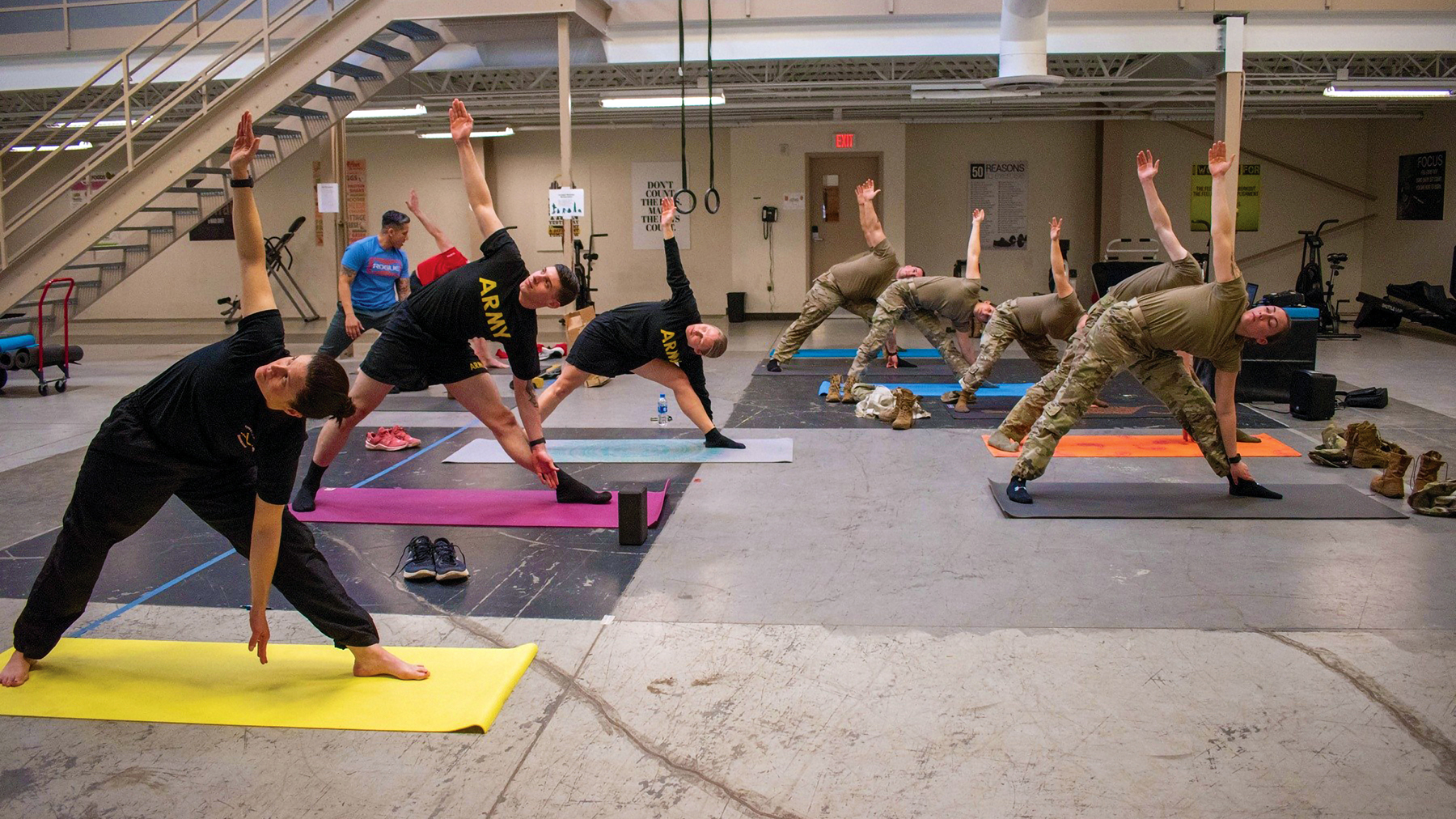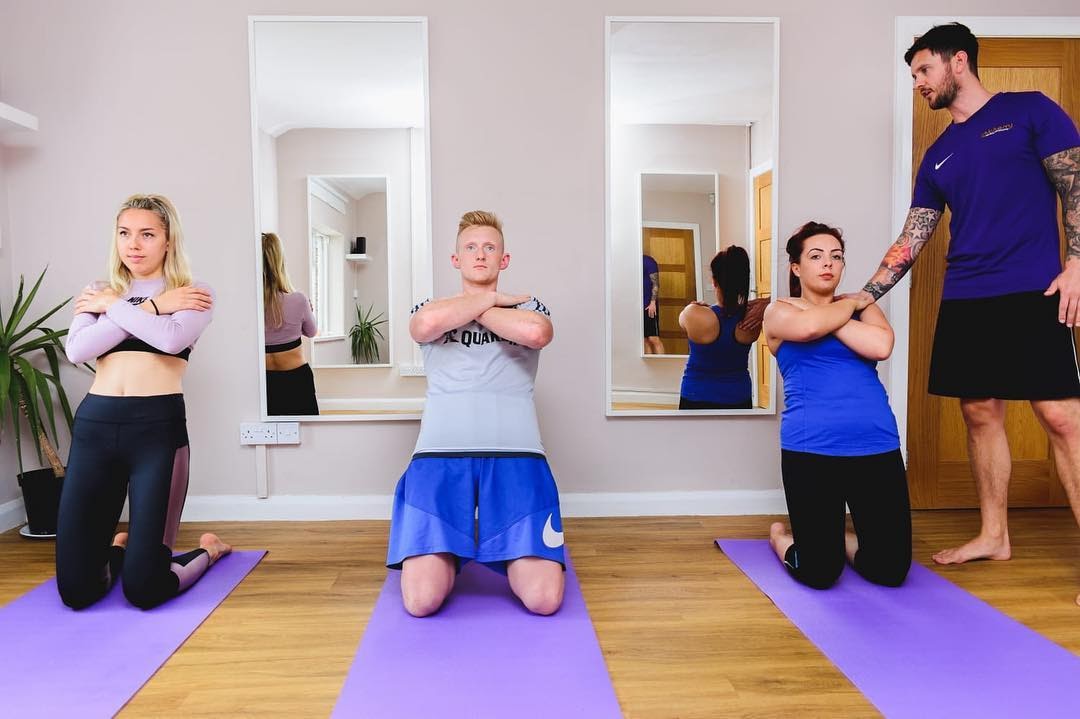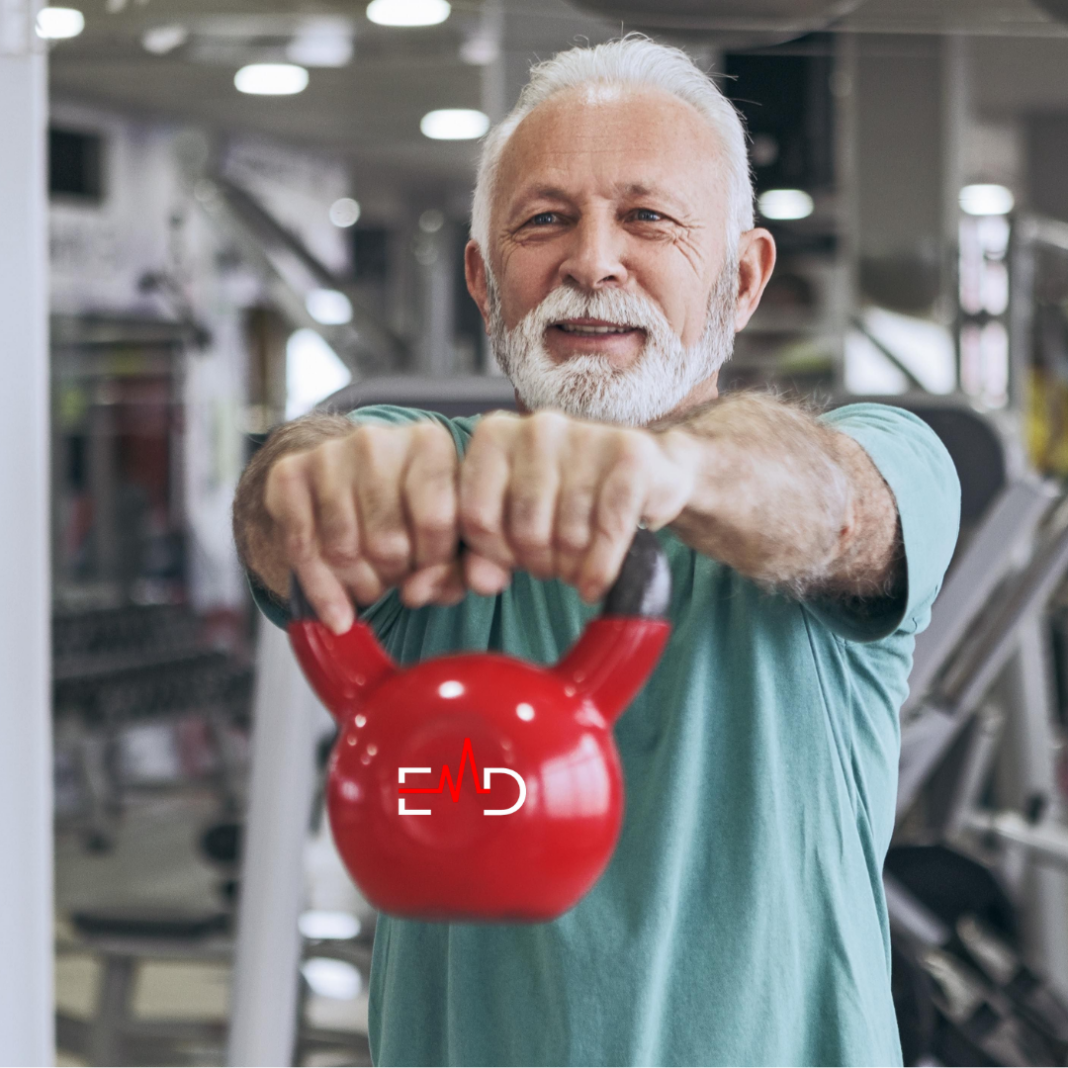Exercise Daily – When many think of “fitness,” what typically comes to mind is sweating at the gym or running outdoors. But true holistic fitness is about so much more than just breaking a sweat – it’s about achieving balance and well-being in your body, Mind & Body Bliss, emotions, and spirit. Holistic fitness aims to support your whole self from the inside out through beneficial practices.
In the hustle and bustle of our modern lives, achieving true well-being goes beyond mere physical fitness. It delves into holistic fitness, a practice recognizing the profound connection between mind and body. In this blog, we’ll explore the concept of holistic fitness, its benefits, components, and how it can bring bliss to every soul.
Holistic Fitness
Holistic fitness is a comprehensive approach to health and well-being that considers the mind’s and body’s interconnectedness. It goes beyond traditional exercise routines, nurturing all aspects of a person’s being. By considering the physical, mental, emotional, and spiritual elements, holistic fitness aims to create balance and harmony.
1. Physical well-being
Holistic fitness recognizes that physical exercise is essential for optimal health. It encourages various exercises that promote strength, flexibility, and cardiovascular endurance. From yoga and Pilates to weightlifting and aerobic activities, the focus is finding activities that resonate with the individual’s body and personal goals. Additionally, holistic fitness emphasizes the importance of proper nutrition, rest, and recovery to support physical well-being.
2. Mental and emotional well-being
Holistic fitness acknowledges the profound impact of mental and emotional health on overall well-being. It prioritizes practices that promote mental clarity, stress reduction, and emotional balance. Mindfulness meditation, breathwork, and visualization techniques are incorporated into holistic fitness routines to enhance self-awareness, reduce anxiety, and improve focus. By cultivating a positive mindset and managing stress effectively, individuals can experience improved mental and emotional well-being.
3. Spiritual well-being
Holistic fitness understands that a sense of purpose and connection to something greater than oneself is vital for overall wellness. It embraces spirituality as a path forward and encourages self-discovery, meaning, and inner peace. Whether through meditation, prayer, or connecting with nature, holistic fitness encourages individuals to explore their spiritual side and nourish their souls. This can provide a profound sense of fulfillment and contribute to holistic well-being.
4. Holistic approach to movement
Holistic fitness emphasizes mindful movement practices that simultaneously engage the mind, body, and spirit. Unlike traditional exercise routines focusing solely on physical fitness, holistic fitness incorporates mindfulness, body awareness, and intentionality in each movement. It encourages individuals to be fully present and to cultivate a deep understanding of how their body feels and responds to different movements. This approach fosters a greater connection between the mind and body and enhances overall movement efficiency and performance.

Mind-Body Connection in Holistic Fitness
The mind-body connection is a fundamental principle in holistic fitness practices. These practices emphasize the integration of the mind and body, recognizing that they are interconnected and profoundly influence each other. This section will explore the significance of the mind-body connection in the context of holistic fitness and the benefits it provides.
1. Physical Benefits
Engaging in holistic fitness practices that foster a strong mind-body connection can have numerous physical benefits. When the mind and body are aligned unharmonized, individuals can experience increased flexibility, strength, and endurance. The awareness cultivated through these practices allows individuals to move more efficiently and precisely, improving posture and reducing the risk of injuries. Additionally, the mind-body connection can enhance overall physical performance, whether in sports, yoga, or other physical activities, as it enables individuals to fully tap into their physical potential.
2. Mental and Emotional Benefits
Holistic fitness practices go beyond physical improvement and focus on mental and emotional well-being. The mind-body connection plays a vital role in promoting mental clarity and reducing stress and anxiety. By mindfully observing bodily sensations and breath, individuals can develop a heightened sense of self-awareness and presence, calming the mind and alleviating mental burdens. This increased awareness allows individuals to manage their emotions better and overall mental and emotional health.
3. Mind-Body Integration
Holistic fitness practices emphasize the integration of the mind and body. Cultivating this integration involves developing an awareness of the body’s sensations, movements, and limitations while simultaneously observing and calming the mind. Through mindfulness and focused attention, individuals can deepen their mind-body connection and enhance their overall well-being.
4. Enhanced Body Awareness
One of the key benefits of the mind-body connection in holistic fitness is the development of enhanced body awareness. This awareness allows individuals to tune into the needs of their bodies, recognizing when they need rest, when they are pushing too hard, or when they require specific exercises or movements to address imbalances. With improved body awareness, individuals can make conscious choices to support their physical well-being.
5. Holistic Health and Wellness
The mind-body connection is integral to achieving holistic health and wellness. By nurturing this connection, individuals can experience a state of balance, harmony, and alignment between their thoughts, emotions, and physical bodies. This holistic approach acknowledges that mental, emotional, and physical well-being are interconnected and that attending to all aspects is essential for overall wellness.

The Importance of Nutrition in Holistic Fitness
Holistic fitness is a comprehensive personal well-being approach encompassing the mind, body, and spirit. While movement, mindfulness, and self-care practices are essential components of holistic fitness, nutrition is crucial in supporting and enhancing these practices. It is often said that “you are what you eat, ” which holds holistic fitness.
Nutrition provides the fuel that powers our bodies and minds. A balanced diet rich in essential nutrients, vitamins, and minerals provides our bodies with the tools to function optimally. This includes physical activities like yoga, Pilates, or strength training, as well as mental exercises such as meditation and mindfulness.
A diet rich in nutrient-dense foods supports our physical fitness goals by providing the energy needed for workouts, aiding in muscle recovery, and promoting overall strength and stamina. Proper nutrition supports our mental well-being, as certain foods and nutrients can directly impact brain function and mood.
Exploring Different Modalities of Holistic Fitness
Holistic fitness encompasses various modalities that nurture the mind and body, allowing individuals to achieve overall well-being. These practices transcend traditional exercise routines and incorporate mindfulness, spirituality, and self-awareness. By exploring different modalities of holistic fitness, individuals can discover new ways to improve their mental and physical health.
Yoga:
Yoga is a revered ancient practice that combines physical postures, breathing exercises, meditation, and mindfulness. It promotes flexibility, strength, and balance while cultivating calm and inner peace. By integrating movements with conscious breathing, yoga helps individuals achieve a harmonious mind-body connection. It offers various styles, such as Hatha, Vinyasa, and Kundalini, allowing practitioners to choose the one that resonates most.
Pilates:
Developed by Joseph Pilates, this modality focuses on building core strength, enhancing flexibility, and improving posture. Pilates incorporates precise and controlled movements that engage deep muscles, helping create a strong and stable foundation. Through mindful breathing and proper alignment, individuals can enhance body awareness and promote a balanced and aligned physique.
Tai Chi:
Tai Chi, a martial art form from ancient China, emphasizes slow and deliberate movements, deep breathing, and meditation. This meditative practice cultivates the flow of vital energy, known as Qi, throughout the body. By practicing Tai Chi, individuals can improve balance, reduce stress, and enhance physical and mental relaxation. It provides a harmonious integration of mind, body, and spirit.
Qigong:
Like Tai Chi, Qigong is a Chinese practice combining gentle movements, breath control, and meditation. Qigong focuses on cultivating and balancing the body’s vital energy, allowing it to flow freely and harmoniously. It promotes physical strength, mental clarity, and emotional balance while reducing stress and improving overall health. Qigong can be practiced standing, sitting, or lying down, making it accessible to individuals of all fitness levels.
Functional Training:
Functional training emphasizes movements that mimic real-life activities and improve strength, flexibility, and endurance. By integrating multi-joint exercises that engage multiple muscle groups, functional training helps individuals improve their ability to perform everyday tasks effectively. This modality focuses on enhancing stability, balance, and mobility to support a person’s daily life and prevent injuries.
Mind-body practices:
Mind-body practices, such as meditation, breathwork, and visualization, can be incorporated into holistic fitness to promote mental and emotional well-being. These practices help individuals quiet the mind, reduce stress, increase self-awareness, and enhance mindfulness. They allow individuals to cultivate a state of calm and clarity, facilitating a deeper connection between mind and body.

Mindfulness and Meditation in Holistic Fitness
In holistic fitness practices, mindfulness and meditation are crucial in nurturing the mind and body. These ancient techniques have gained immense popularity in recent years, owing to their profound impact on well-being and overall health.
1. Mindfulness: Being Present in the Moment
Mindfulness is being fully present and aware of the Moment without judgment or reaction. It involves redirecting the focus of attention to the sensations, thoughts, and emotions experienced in the present Moment. Individuals can enhance their self-awareness and develop a deeper understanding of their thoughts and emotions by cultivating mindfulness.
Mindful movement, such as yoga and tai chi, combines physical postures with breath awareness and mindful attention. This integration of movement and mindfulness allows individuals to connect with their bodies deeper, promoting balance, flexibility, and strength.
2. Meditation: Cultivating Inner Peace
Meditation is a discipline that involves training the mind to achieve a state of deep relaxation and heightened awareness. Individuals can cultivate inner peace, reduce stress, and improve emotional well-being through meditation. Regular meditation practice has been shown to have numerous benefits, including increased focus, improved sleep, and reduced anxiety and depression.
3. The Synergy of Mindfulness and Meditation in Holistic Fitness
Integrating mindfulness and meditation into holistic fitness practices allows individuals to tap into the synergy between the mind and body. By combining physical movement with mindful attention and meditation, individuals can experience a holistic fitness approach that nurtures their physical and mental well-being.
Through mindfulness and meditation, individuals can cultivate a deeper awareness of their bodies and how they move, improving posture, balance, and flexibility. Moreover, these practices can help individuals better understand and manage their thoughts and emotions, promoting emotional resilience and overall mental well-being.
The Role of Community and Support in Holistic Fitness
Community and support play a crucial role in pursuing holistic fitness. While individual motivation and discipline are important factors, having a supportive community can exponentially enhance one’s journey toward mind and body bliss. Here, we explore the significance of community and support in holistic fitness practices.
1. Motivation and Accountability
A strong sense of community provides the much-needed motivation and accountability often lacking when trying to achieve fitness goals alone. Being surrounded by like-minded individuals with similar aspirations and challenges can fuel motivation and drive. Whether through group workouts, online support networks, or local fitness communities, individuals can find support to stay on track and push through obstacles.
2. Sharing Knowledge and Experiences
Engaging in holistic fitness practices within a supportive community allows exchanging knowledge and experiences. Different individuals bring unique perspectives, techniques, and insights that can broaden one’s understanding of holistic wellness. Sharing successes, challenges, and tips becomes instrumental in personal growth and discovering new approaches to nurturing mind and body.
3. Emotional Support and Encouragement
Holistic fitness is about physical exercise and mental and emotional well-being. A supportive community can provide a safe space where individuals can openly express their thoughts, fears, and triumphs. Emotional support and encouragement from peers who understand the struggles can be incredibly uplifting and empowering.
4. Collaboration and Skill Development
The power of community lies in collaboration and shared learning. Individuals can explore holistic fitness modalities within a supportive network, such as yoga, meditation, or mindful movement. By working together, participants can deepen their understanding of these practices, develop new skills, and inspire one another to reach new heights.
5. Celebrating Milestones and Achievements
In a holistic fitness community, celebrating milestones and achievements becomes a collective joy. By sharing accomplishments, individuals inspire and encourage others to persevere on their paths toward mind and body bliss. These celebrations reinforce a positive mindset and foster continuous growth and support.
6. Creating a Sense of Belonging
A deep sense of belonging is an essential aspect of holistic fitness. Being part of a supportive community fosters inclusion, acceptance, and shared purpose. This sense of belonging nurtures overall well-being and encourages individuals to stay committed to their holistic fitness practices for the long term.

Incorporating Holistic Fitness into Your Daily Routine
In today’s fast-paced world, finding the time and energy to care for our minds and bodies can be challenging. However, we can nurture our mental and physical well-being by incorporating holistic fitness into our daily routines. Here are some practical tips for incorporating holistic fitness into your daily routine:
1. Elevate Your Mindset
Begin by cultivating a positive and mindful mindset. This can be achieved through meditation, journaling, or affirmations. Taking a few moments each morning to center yourself and set positive intentions for the day can significantly impact your overall well-being.
2. Move Your Body
Engage in physical activities that improve your physical fitness and promote holistic wellness. Incorporate a combination of cardio, strength training, and flexibility exercises into your routine. Consider trying activities such as yoga or tai chi, which focus on fitness’s physical and mental aspects.
3. Explore Mindful Movement
Incorporate mindful movement practices into your routine rather than approaching exercise as a physical endeavor. Mindful movement involves being fully present in the Moment and paying attention to the sensations in your body as you move. This can be achieved through activities such as walking or dancing mindfully, where you focus on the rhythm of your steps or the flow of your movements.
4. Practice Breathwork
Deep breathing exercises can help reduce stress, increase energy levels, and improve mental clarity. Incorporate simple breathwork techniques into your daily routine, such as belly or alternate nostril breathing. Taking a few moments to focus on your breath can provide a sense of calm and grounding throughout the day.
5. Embrace Nature
Connect with the natural world around you by spending time outdoors. Whether going for a hike, gardening, or simply sitting in a park, immersing yourself in nature can profoundly impact your overall well-being. The sights, sounds, and smells of nature can help reduce stress, increase vitality, and foster a deeper connection to yourself and the world around you.
6. Nurture Your Mind-Body Connection
Dedicate time each day to nurture the connection between your mind and body. This can be achieved through practices such as mindful eating, body scanning, or practicing gratitude. You can develop a stronger mind-body connection by tuning in to your body’s cues and nurturing a deep gratitude for your body’s abilities.
Overcoming Obstacles and Challenges in Holistic Fitness
Holistic fitness is not without its obstacles and challenges. However, with a mindful and proactive approach, individuals can overcome these hurdles and continue their journey towards improved mind-body well-being. Here are some strategies for overcoming obstacles and challenges in holistic fitness:
Time constraints:
One of the most common obstacles individuals face in holistic fitness is finding time in their busy schedules to dedicate to their wellness practices. One way to overcome this challenge is to prioritize self-care and make it a non-negotiable part of the day. Individuals can ensure they give themselves the time and attention they need by setting aside specific times for holistic practices such as yoga, meditation, or mindful movement.
Lack of motivation:
Another obstacle is the lack of motivation to engage in holistic fitness practices. To overcome this challenge, individuals can find ways to make their fitness routine more enjoyable and rewarding. This could involve finding a workout buddy or joining a supportive community with similar wellness goals. Additionally, exploring different holistic fitness modalities and incorporating variety into the routine can help maintain motivation and prevent boredom.
Physical limitations:
Physical limitations can sometimes hinder individuals from fully participating in certain holistic fitness practices. However, there are always alternatives and modifications available. Listening to the body and finding activities that work within individual physical capabilities is important. Consulting with qualified instructors or practitioners who provide guidance and modifications can help individuals adapt their holistic fitness routine to their specific needs and abilities.
Financial constraints:
Holistic fitness practices can be gym memberships or specialized equipment. Ho can sometimes come with a cost; plenty of affordable or even free options are available. Online resources, community classes, and outdoor activities can provide cost-effective alternatives for holistic fitness. Additionally, exploring DIY options, such as creating a home yoga or meditation space, can help individuals overcome financial constraints.
Mental roadblocks:
Holistic fitness goes beyond the physical aspect and involves the mind as well. Insecurities, self-doubt, and negative self-talk can create mental roadblocks that hinder progress. Building a strong mindset and cultivating self-compassion is crucial for overcoming these obstacles. Practicing mindfulness, gratitude, and affirmations can help individuals overcome mental roadblocks and stay on track with their holistic fitness journey.
The Benefits of Holistic Fitness on Mental Health
Holistic fitness practices encompass a variety of physical activities that not only nourish the body but also have profound benefits for mental health. Adopting a holistic approach to fitness promotes the integration of mind, body, and spirit, improving overall well-being. Here are some of the key benefits of holistic fitness on mental health:
1. Reduces stress and anxiety
Engaging in holistic fitness practices such as yoga, tai chi, or Qigong can help alleviate stress and anxiety. These activities focus on deep breathing, mindfulness, and gentle movements, which have a calming effect on the mind and body. Regular practice of these exercises can promote relaxation, reduce cortisol levels, and improve stress management skills.
2. Enhances mood and boosts happiness
Physical exercise, in any form, releases endorphins, also known as “feel-good” hormones. Holistic fitness practices go beyond physical exercise, incorporating meditation, visualization, and positive affirmations. This combination improves physical health, uplifts mood, increases self-awareness, and cultivates a positive mindset.
3. Promotes mental clarity and focus
Holistic fitness practices often emphasize mindfulness and being present in the Moment. Individuals can train their minds to focus and cultivate mental clarity through mindful meditation or movement. Regular practice helps sharpen attention span, improve concentration, and enhance overall cognitive function.
4. Improves sleep quality
Many holistic fitness practices, such as gentle stretching or restorative yoga, promote relaxation and stress reduction. These practices can enhance sleep quality by calming the mind and releasing body tension. A good night’s sleep is essential for mental well-being, as it supports cognitive function, emotional resilience, and overall mental clarity.
5. Boosts self-confidence and body image
Holistic fitness promotes a positive relationship with one’s body and self-image. Individuals can develop a healthy body image, improve self-esteem, and enhance self-confidence by focusing on overall well-being rather than just physical appearance. This shift in mindset can profoundly impact mental health and overall life satisfaction.
6. Supports emotional well-being
Holistic fitness practices provide a platform for emotional expression and release. Dance, for example, is a holistic fitness practice that allows individuals to express themselves through movement, which can be a cathartic experience. Emotional release through movement can help individuals process and manage emotions, improving emotional well-being.

Creating a Holistic Fitness Plan for Long-Term Wellness
When achieving long-term wellness, adopting a holistic approach to fitness is important. A holistic fitness plan considers the physical aspect of wellness and an individual’s mental, emotional, and spiritual well-being. You can create a comprehensive plan that nurtures your mind and body by incorporating various practices and strategies.
1. Set Clear Goals
To begin, it must align with your overall well-being. Take some crucial time to reflect on what you hope to achieve through your fitness journey. Is it weight loss, increased strength, improved flexibility, or a sense of overall vitality? You can tailor your fitness plan to meet your specific needs and aspirations by defining your objectives.
2. Incorporate Different Types of Exercise
A well-rounded fitness plan incorporates various types of exercise to challenge and improve your physical fitness. Include cardiovascular exercises like running, swimming, or biking for endurance and heart health. Strength training exercises such as weightlifting or body weight can help build muscular strength and tone. Don’t forget about flexibility exercises like yoga or Pilates, which can improve mobility and prevent injuries. By including a mix of exercises, you can target different fitness areas and enjoy a more balanced approach to wellness.
3. Practice Mindful Movement
In addition to physical exercise, it is important to incorporate mindful movement practices into your fitness plan. Mindful movement involves being fully present in the Moment and paying attention to your body’s sensations, thoughts, and emotions as you move. Practices like yoga, tai chi, or Qigong focus on the mind-body connection and can enhance overall well-being. These practically improve strength and flexibility and promote mental clarity and stress reduction.
4. Prioritize Recovery and Rest
A holistic fitness plan recognizes the importance of rest and recovery. Make sure to include rest days in your schedule to allow your body to recover and repair. Additionally, prioritize quality sleep to support your overall wellness: sleep is crucial in muscle recovery, hormone regulation, and mental clarity. Incorporating relaxation techniques such as meditation or deep breathing exercises can also help reduce stress and promote better sleep.
5. Embrace Holistic Nutrition
A vital aspect of a holistic fitness plan is nourishing your body with wholesome, nutritious foods. Embrace a balanced and varied diet that includes fruits, vegetables, lean proteins, whole grains, and healthy fats. Avoid overly processed foods, sugary snacks, and excessive caffeine or alcohol consumption, as they can negatively impact your overall well-being. You can optimize your energy levels and support your fitness goals by fueling your body with nutrient-dense foods.
6. Seek Professional Guidance
If you are unsure how to create a holistic fitness plan, consider seeking the guidance of a professional. A qualified fitness instructor or wellness coach can provide personalized advice and support in developing a plan that aligns with your goals and needs. They can also help modify exercises or suggest alternative practices that cater to any specific physical or medical conditions you may have.
Conclusion
Mind and body bliss through holistic fitness is not an elusive goal but an accessible journey for every soul. By embracing the interconnectedness of our physical and mental well-being, individuals can cultivate a lifestyle that promotes health, happiness, and fulfillment.
FAQs – Mind & Body Bliss: Holistic Fitness for Every Soul
Q: Is holistic fitness suitable for all age groups?
Yes, holistic fitness can be adapted to suit individuals of all age groups, promoting well-being at every stage of life.
Q: How long does it take to see the benefits of holistic fitness?
The timeline varies, but consistent practice often yields noticeable physical and mental benefits within a few weeks.
Q: Can I practice holistic fitness at home?
Absolutely! Many holistic fitness practices, such as yoga and meditation, can be done in the comfort of your home.
Q: Are there specific dietary guidelines for holistic fitness?
Holistic fitness encourages a balanced and nutritious diet, emphasizing whole foods and mindful eating practices.
Q: Is holistic fitness a replacement for traditional workouts?
Holistic fitness can complement traditional workouts, providing a more comprehensive approach to overall well-being.




